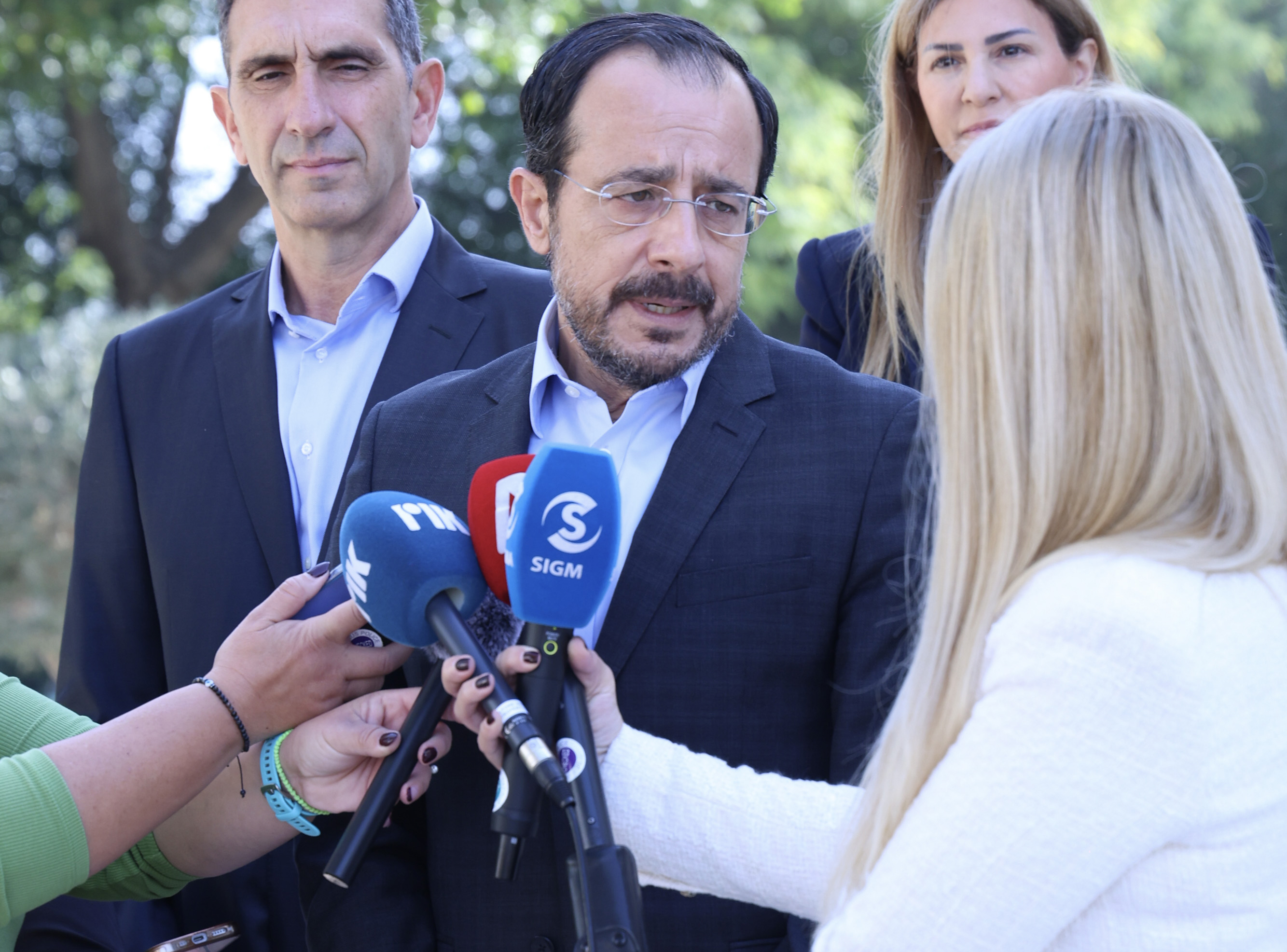President Nikos Christodoulides has completed more than half his term and if there is one thing we have seen in these 32 months it is that his is a government that specialises in big words and nice sounding phrases. When it comes to getting things done, however, there is a reluctance to take important decisions, presumably, for fear of getting things wrong or alienating a section of the population.
The president and his spokesmen are much more comfortable telling us about our “diplomatic footprint,” the “added value of the country,” the “pylon of stability and security,” and that we are “part of the solution rather than the problem.” This may be because the president had a career in the foreign ministry, which employs talkers rather than doers, people who do not get their hands dirty on the job, sticking instead to fine words.
Inevitably, the focus of this government has been on foreign policy, the president traveling all over the world to expand Cyprus’ diplomatic footprint, visits that are followed by long-winded analyses by his spokesmen explaining their significance for the country. For example, after Foreign Minister Constantinos Kombos’ meeting with US Secretary of State Marco Rubio, the government spokesman, in his didactic style, told us that “the overall imprint of the meeting confirms that Cyprus has entered a new phase of international presence and political weight.”
This boastful rhetoric has become so common that we doubt it is taken seriously, if anyone is listening to it. People have much more immediate, practical things to worry about in their daily lives than Cyprus’ supposedly upgraded role in the world order. In fact, Cyprus’ allegedly expanding regional role is of no consequence or interest to people struggling to make ends meet at the end of the month, because their electricity bill was so high or rent has increased.
When it comes to big projects that affect people’s lives, the government seems more at ease terminating contracts. Since coming to power, it has terminated those for the Vassilikos gas terminal, the Pentakomo waste treatment plant and most recently the Paphos-Polis highway. The compensation the taxpayer will eventually have to pay for these broken contracts, nobody can predict, but was termination the best way to resolve disputes with contractors? In the case of Paphos-Polis highway, breaking of the contract was imposed by an official of the Public Works Department despite the reservations of politicians.
Even the Great Sea Interconnector (GSI), described by the energy minister as a project of “strategic importance,” was at risk of being abandoned because the finance minister insisted it was inviable. Christodoulides had even attacked the project promoter Admie, which is 51 per cent-owned by the Greek state, accusing it of blackmailing his government about GSI that also had the support of the European Commission, which committed more than €600 million to it. In the end, the president backed down but when he met Greek Prime Minister Kyriakos Mitsotakis, some 10 days ago, they agreed to “update the economic and technical parameters” of the project.
Was Christodoulides keeping an escape route open, because he is afraid to commit to the project? In words, however, he was ahead of the game. He told a gathering on Wednesday that his government would proceed to new electric interconnectivity projects with neighbouring states. The government is reluctant to commit to the project it had signed an agreement for but is now talking about similar projects with neighbouring states.
The do-nothing approach was laid bare by the failure to do something about the impending water shortage until the last minute. This inaction was exposed recently by Disy deputy Fotini Tsiridou, who tabled a bill with five key measures for easing traffic congestion. The traffic jams, on the streets of Limassol and Nicosia in particular, are a major inconvenience and stress in people’s daily lives, but the only action this government has taken is to introduce bus services, mainly in and out of Nicosia. It was left to an individual deputy to come up with a plan that envisages the establishment of ‘traffic management centres’ to control the traffic flow, among other things.
Should this not be done by the government, which has the resources to draft a comprehensive traffic control plan, and in words at least, is committed to improving our quality of life? It is high time the president understood that people’s lives cannot be improved with big fancy words about the diplomatic footprint.






Click here to change your cookie preferences